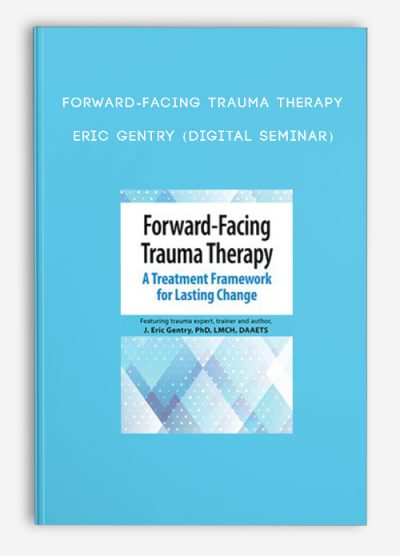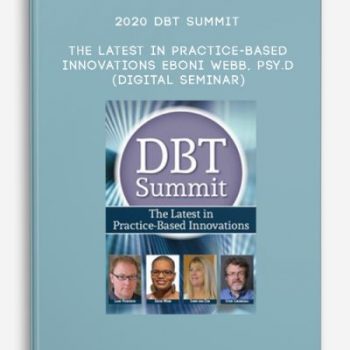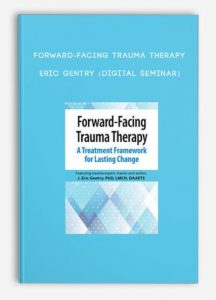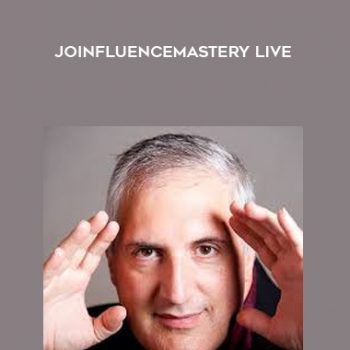Forward-Facing Trauma Therapy – ERIC GENTRY (Digital Seminar)
Description:
Hyper-aroused from a traumatic past, your client’s threat response sounds off stridently when there is little to no danger. It leaves them in a constant reactive state; feeling out of control and uncomfortable in their own skin.
But many traditional treatments fail to give clients the tools they need to face these challenges of the here-and-now, instead requiring a focus on past traumatic memories that can set off that threat response again and again. Instead of gaining control over their body’s reactions and lives, clients can deteriorate and lose hope.
The Forward-Facing Therapy Framework can help you to move clients forward so they can flourish in the present!
Forward Facing Therapy is a simple treatment protocol that gives you the skills and clinical tools you need to interrupt the involuntary physical and cognitive engagement of the threat response and restore their sense of safety, intentionality and hope! It can be used as a stand-alone or incorporated with other treatment methods you already use.
Eric Gentry, PhD, LMCH, DAAETS, trauma expert, trainer and author, has trained thousands of mental health professionals like you on how to make trauma treatment more effective. Join him as he shows you how to integrate this framework into your clinical practice so you can:
- Quickly lessen clients distress and improve cognitive functioning
- Reestablish their comfort in their bodies
- Teach clients to self-regulate their own autonomic nervous system
- Restore clients’ sense of safety, agency and hope
This is one training you don’t want to miss!
Bring the Forward-Facing framework into your trauma work and help clients find lasting healing and positive treatment outcomes!
Outline:
Trauma & Traumatic Stress: What Every Therapist Needs to Know
- The myth of stress
- How stress affects the mind and body
- Neurocience of traumatic stress
- Causes Trauma & Traumatic Stress
- What Heals Trauma & Traumatic Stress
- Understand the research
- Limitations and potential risks
Essential Elements of Trauma Treatment: The Ground Work for Successful Trauma Treatment
- “Active Ingredients” for Effective Trauma Treatment
- A good therapeutic relationship
- Self-regulation/relaxation technology
- Safe exposure
- Cognitive restructuring/psychoeducation
Assessment & Staged Treatment Approach for Trauma: Integrating an Empowerment & Resilience Treatment Structure
- Preparation & Relationship
- Positive Expectancy
- Feedback Informed Treatment
- Skills Building and Cognitive Restructuring
- Tools for Hope (An “Owner’s Manual” for the ANS)
- Self-Regulation: Neuroception & Interoception
- Skills for Self-regulation
- Desensitization & Integration
- In vivo vs. Imaginal Exposure
- Forward-Facing Trauma Therapy & In vivo Exposure
- Posttraumatic Growth & Resilience
- Intentionality
- Construct “Documents of Intention”
- Healing the Moral Wound
NLP online course
So what is NLP?
NLP stands for Neuro-Linguistic Programming. Neuro refers to your neurology;
Linguistic refers to language; programming refers to how that neural language functions.
In other words, learning NLP is like learning the language of your own mind!
NLP is the study of excellent communication–both with yourself, and with others.
It was developed by modeling excellent communicators and therapists who got results with their clients.
NLP is a set of tools and techniques, but it is so much more than that.
It is an attitude and a methodology of knowing how to achieve your goals and get results
Preview Information:
Original Page
Archive Page
More Course: NLP – HYPNOSIS – PHILOSOPHY
Outstanding Course:World Wide Transformation Summit 2016














Lord –
This is Digital Download service, the course is available at Vincourse.com and Email download delivery.